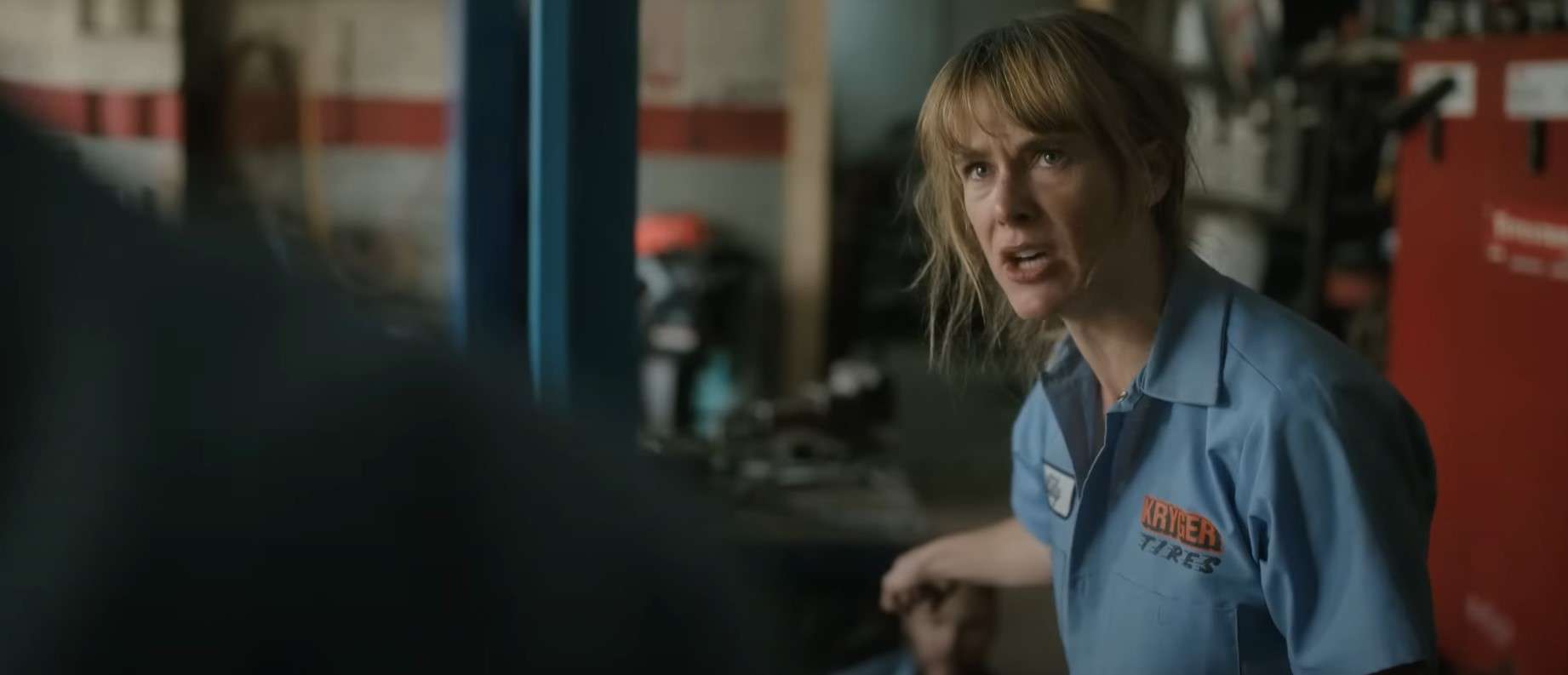One of the latest Netflix series worth my attention was Painkiller, a limited series starring Matthew Broderick, Sam Anderson, Uzo Aduba, and Taylor Kitsch based upon two best-selling books that chronicle the sprawling opioid epidemic that took by storm Appalachia and moved westward into the United States.
Produced by documentarist Alex Gibney —whose documentary “The Crime of the Century for HBO covers the same topic— and with Barry Meier and Patrick Radden Keefe, the latter being one of the best biographers for the Sackler family, the show gives a very concise portrayal of what this public health crisis is, how it unraveled and it the impact it had on the users, their families and the botched governments’ responses that ensued.
Painkiller is in the same vibe as Hulu’s “Dopesick” or the aforementioned “The Crime of the Century” from HBO or Mariana Van Zeller’s Oxycontin Express.
It’s a riveting drama that will captivate you, and I am going to share with you what I consider is the conclusion to this miniseries, as many people are wondering about several things concerning the conclusion.

What Is Netflix’s Painkiller About?
Painkiller chronicles the sprawling OxyContin abuse epidemic from several different angles, from the ones that made and marketed the drug to the Sacklers, owners of Purdue Pharma, and the makers of OxyContin.
A Jewish dysfunctional family clan interested in money, whose greedy demeanor made them grease the wheels of the regulators and law enforcement to fast-track the approval of a molecule with an extremely high potential of abuse while washing their public image by giving out money to museums, medical schools, and other philanthropic causes.
In those roles, we have Matthew Broderick’s amazing interpretation of Richard Sackler, Sam Anderson as Raymond Sackkler, and Clark Gregg as Arthur Sackler.
Then, we have Uzo Aduba’s character Edie Flowers, a government employee working for the district attorney pursuing healthcare fraud cases, who serves as the narrator at a deposition as the series unfolds, sharing her findings, and telling us the story from a perspective in which the government did little to nothing to stop the plague being unleashed.
Britt Hufford and West Duchovny play Purdue’s Pharma sales reps, two women that started making lots of money and seeing their wealth increase because they were getting paid hefty bonuses from Purdue Pharma.
Lastly, we have Taylor Kitsch’s character, an auto repair shop owner that, due to a back injury, was prescribed OxyContin, got hooked on it, and eventually lost his family and business in order to get high off the drug.
Painkiller’s Message
Under the direction of Peter Berg and beautifully scripted and put into scenes, each episode starts with one of the family survivors of this tragedy.
The series tells us one thing in essence: Drug addiction destroys not only the individual that abuses the drug but those around it, and while in cases of drugs like cocaine and methamphetamine, in which the Justice System puts behind bars everyone involved in the trade and even the addicts, in the case of the OxyContin crisis, the common denominator was doom for the addicts, wealth and impunity for the makers.

Painkiller Ending Explained
Taylor Kitchs’s character, Glen, destroys his life after being prescribed OxyContin. Took it as his doctor told him, and he got hooked on it so badly we were left hanging knowing if he recovered or not because, across the episodes, we see him relapse and regret his decisions, not fueled by rational thought but from being dope sick.
Uzo Aduba’s character Edie Flowers eventually realizes that despite all the work she did with the prosecution, discovering that the Sacklers had enough money to pull every single government string to get off the hook, she ends up disappointed when she realizes that Purdue and the Sacklers despite knowing that they were acting like a bonafide legal drug cartel, only got a slap on the wrist from the legal perspective.
Also Read: Fake Profile Ending Explained: Pedro’s Hidden Intention
What Happened To Purdue Pharma and The Sacklers?
Purdue Pharma was never held formally responsible before a court of law for unleashing an addiction crisis that destroyed families, killed lives, and created a totally avoidable public health crisis.
Only three executives were processed, they were fined, they never served time, and received an administrative sanction as fall guys —patsies— for the chaos they created.
No Sackler family member was ever criminally prosecuted. Class-action lawsuits ensued, and eventually, the government fined Purdue Pharma the equivalent in costs of a Navy Aircraft carrier —north of five billion dollars—but that kind of money, nor any kind, is enough to bring back those who died from a pill that was marketed as safe, no restitution was made to the victims, and the criminal justice system still goes after the addicts.
Purdue Filed For Bankruptcy
Given the public awareness, the Sacklers kept their billions, but their philanthropic work was eventually erased: The buildings with their names, the art galleries, the schools of medicine, the auditoriums, and institutions bearing their name were eventually erased and changed in the face of the public outcry.
Purdue filed for bankruptcy in 2021, the Sackler name is synonymous with that of a white-collar Pablo Escobar, and their legacy was forever inscribed into infamy.
My Final Thoughts On Painkillers
All in all, Painkiller is a riveting drama that shows us one side of the opioid epidemic, of the war on drugs that tells us that impunity is pervasive when it comes to this sort of thing. If you enjoyed Painkiller, consider watching “Dopesick,” “The Crime of the Century,” and “Oxycontin Express.”
And if you’re book savvy, I recommend you read “Dopesick” by Beth Macy, “Painkiller” by Barry Meier, and “Empire of Pain” by Patrick Radden Keefe, literary works that served as inspiration for this series.
The Problem With The War On Drugs
The War on Drugs in the United States served as an excuse to go after political dissidents at the height of the Vietnam War and eventually morphed into a way for politicians to justify perpetually expanding the defense budgets for law enforcement, jailing minorities and addicts, treating a public health issue like it was a national defense problem, expanding the prison industrial complex all the while no restitution was ever given to the victims of the violence, few, if no treatments were provided to the addicts and those responsible never had a day in court.
Also Read: Zombieverse Season 2: All You Need To Know




